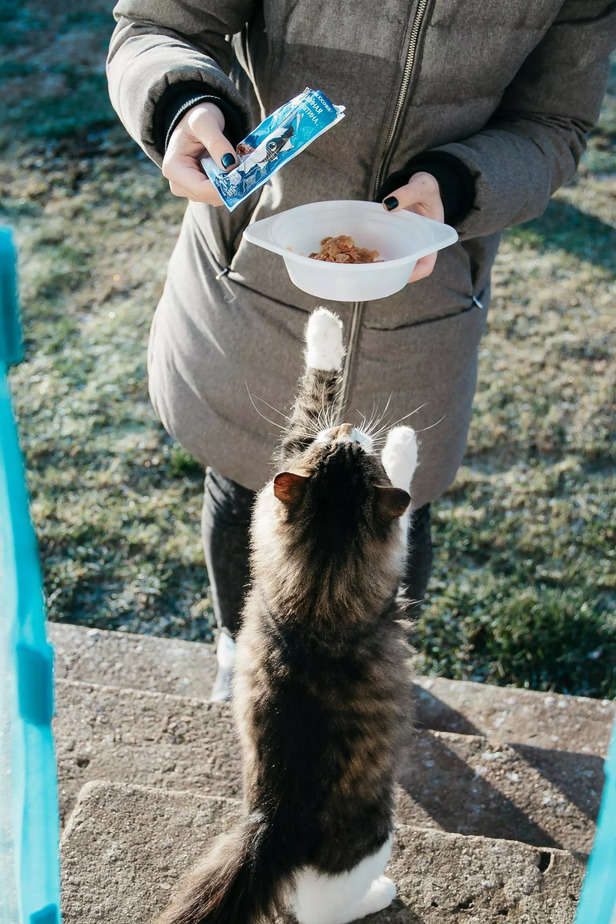Think You’re a Good Person? Here’s the Truth About Your Actions
Ankita Rai | Fri, 28 Feb 2025
We all believe we’re good people—but are we really? This article dives deep into what it means to be truly good, beyond just self-perception. From accountability to empathy and the hidden traps of moral convenience, discover if your kindness is genuine or just a comforting illusion. The real question: Are you as good as you think?

( Image credit : Pexels )
Photo:
We all like to think we're good people. We hold doors open, give when we can, and try not to be rude. But then at some point have you ever sat back and wondered: Am I really a good person? Or do I want to be?
The reality is, being a good person has nothing to do with how we perceive ourselves—it's about how we present ourselves to others. And sometimes, what we think about ourselves isn't exactly what the world sees.
 We all want to be the hero of our own tale, the one who acts right when it counts. But here's the thing: what we perceive as good doesn't always equal good.
We all want to be the hero of our own tale, the one who acts right when it counts. But here's the thing: what we perceive as good doesn't always equal good.
Consider this—have you ever done something nice, but secretly, it was for approval? Or sidestepped a difficult conversation because you didn't want to be the "bad guy"? Sometimes our need to be perceived as good gets in the way of being good.

One of the biggest indicators of being a truly good person is empathy—not only when it's easy, but when it's inconvenient.
It's simple to console a friend when they're down, but do you arrive when it's hard? Do you call in on individuals when they're not clearly struggling? True goodness isn't about being heroic; it's about the little, steady ways you let people know they're important.

Many folks proclaim, "I'm a good person," but then blame others when they screw up. The reality is, good people take responsibility for their errors. They don't make excuses or pass the buck—they own up when they've hurt someone, apologize genuinely, and strive to do better.
So ask yourself: Do I own up to my behavior? Or do I rationalize it to maintain a positive self-image?

It’s easy to be kind when there’s an audience. Complimenting a coworker in front of the boss? No problem. Posting about social causes? Sure. But what about when no one’s watching?
Do you tip as well if the server is not extremely nice? Do you respect store workers in the same manner that you respect your friends? Do you assist people who cannot provide you with anything in return? The real test of character is not the things you do for people—it's what you do when nobody's watching.
 Many associate being "nice" with being "good." But often, actual goodness involves saying no. It involves respecting people's boundaries, understanding where they are, and not inserting yourself into their life simply because you feel like you're helping.
Many associate being "nice" with being "good." But often, actual goodness involves saying no. It involves respecting people's boundaries, understanding where they are, and not inserting yourself into their life simply because you feel like you're helping.
It's simple to feel like we're being good when we offer unasked-for advice or attempt to "solve" someone's issues. But actual goodness involves respecting other people's agency—not behaving like we always know what's best.

Ultimately, it's not about being perfect to be a good person—it's about intention, action, and accountability. It's about habitually choosing to be kind when it's hard. It's about being true to yourself, owning where you can do better, and actively working on improving.
So, are you a good person? Or do you merely want to pretend to be one? The answer isn't in what you say—it's in what you do.
And that decision? That's your call.
The reality is, being a good person has nothing to do with how we perceive ourselves—it's about how we present ourselves to others. And sometimes, what we think about ourselves isn't exactly what the world sees.
The Illusion of Being "Good"

the illusion of being good
( Image credit : Pixabay )
Consider this—have you ever done something nice, but secretly, it was for approval? Or sidestepped a difficult conversation because you didn't want to be the "bad guy"? Sometimes our need to be perceived as good gets in the way of being good.
Empathy vs. Convenience

empathy
( Image credit : Pexels )
One of the biggest indicators of being a truly good person is empathy—not only when it's easy, but when it's inconvenient.
It's simple to console a friend when they're down, but do you arrive when it's hard? Do you call in on individuals when they're not clearly struggling? True goodness isn't about being heroic; it's about the little, steady ways you let people know they're important.
Do You Take Accountability?

accountability is important
( Image credit : Pixabay )
Many folks proclaim, "I'm a good person," but then blame others when they screw up. The reality is, good people take responsibility for their errors. They don't make excuses or pass the buck—they own up when they've hurt someone, apologize genuinely, and strive to do better.
So ask yourself: Do I own up to my behavior? Or do I rationalize it to maintain a positive self-image?
Are You Kind When No One's Watching?

being kind
( Image credit : Pixabay )
It’s easy to be kind when there’s an audience. Complimenting a coworker in front of the boss? No problem. Posting about social causes? Sure. But what about when no one’s watching?
Do you tip as well if the server is not extremely nice? Do you respect store workers in the same manner that you respect your friends? Do you assist people who cannot provide you with anything in return? The real test of character is not the things you do for people—it's what you do when nobody's watching.
Respecting Boundaries : The Underrated Virtue

respecting boundaries
( Image credit : Pixabay )
It's simple to feel like we're being good when we offer unasked-for advice or attempt to "solve" someone's issues. But actual goodness involves respecting other people's agency—not behaving like we always know what's best.
Final Thought: Being Good Is a Choice, Every Day

being a good person
( Image credit : Pixabay )
Ultimately, it's not about being perfect to be a good person—it's about intention, action, and accountability. It's about habitually choosing to be kind when it's hard. It's about being true to yourself, owning where you can do better, and actively working on improving.
So, are you a good person? Or do you merely want to pretend to be one? The answer isn't in what you say—it's in what you do.
And that decision? That's your call.










